(This post is slightly edited from a blogpost I wrote for January 13, 2018. Listen to the radio version here.)
In November 2016, I spent two weeks in the Pearl of Africa—what the President of the United States has proclaimed a “shithole.” (Gift link to the January 12, 2018 Washington Post article about this.) Uganda may be poor in terms of economics, which for the past few centuries have been measured in how successfully some countries and their corporations can exploit other countries and natural resources. The Americans in power right now consider economics in terms of short-term gains for themselves and the wealthiest people and corporations in the world, never in terms of long-term sustainability, how clean the air and water are, how robust and sustainable wildlife populations are, or how happy and healthy the poorest people are.
While I was in Uganda, I got to see firsthand that although most of the people in Uganda are tragically poor, they are hardworking and generous spirited, and the country has a wealth of natural resources. We spent part of the time in meetings, and could only briefly sample the wildlife in most of the places we stopped at so we could cover more ground. But wow! The golden crown atop Uganda’s national bird sparkles with a warmth and delicate beauty that mere metallic gold could never achieve. These crowned cranes are often kept in captivity—I saw my first at the International Crane Foundation in Baraboo, Wisconsin—but only in eastern and southern Africa do they live free in the spectacular natural environment they evolved in.
I saw hundreds of new birds I could never have seen wild in the United States nor anywhere else in the world except a place that our President thinks is a shithole—I gloried in a rainbow of bee-eaters and sunbirds…
…stunning turacos and hornbills…
…storks and kingfishers…
…weavers…
…and starlings.
We saw well over 400 species of birds. And mammals! I never dreamed that I would ever be able to see giraffes…
…hippos…
…or warthogs in the wild.
I saw oxpeckers on the backs of African buffaloes…
…an adult chimpanzee…
…lions mating…
…and a mother elephant with her week-old baby.
I even spent my 65th birthday at Bwindi National Park’s Impenetrable Forest with a group of mountain gorillas!
Beyond the amazing wildlife, the best gift of that trip was the time I spent with Ugandan people. The two guides I spent the most time with and got to know the best were two lovely young people, Nanyombi Proscovia and Denis Arineitwe. Their brilliance and generosity, sharing their knowledge with warmth and kindness, marked them as truly rich in ways that a president with a shriveled, impoverished soul could never be.
This amazing trip was a gift, literally as well as figuratively. My career choices normally keep this level of world travel completely beyond my means. I went to Uganda as an invited guest, courtesy of their government, in hopes that those invited on the tour would love the country and let the rest of the world know how splendid it is. A tragedy of the world’s current obsession with exploitation and wealth hoarding is that poor countries depend on ecotourism to justify preserving natural resources.
The same president who called Haiti and much of Africa shitholes keeps talking about making America great again. But what time is he talking about? I went to a conservative Catholic elementary school starting in 1957, at the peak of that mythical post-war era when many Americans think America was supposedly at its greatest. What we were taught throughout my education, and what was reinforced over and over in our Faith and Freedom reading series, was that wealth is measured not by what we have but by how much we freely give to others. In first grade, one story that stuck with me through my entire life was about a little girl named Ann. For Christmas, her only present was a beautiful doll wearing a fancy white dress trimmed with red ribbons.
Her teacher told the children they could bring their new toys to school for a day, and Ann of course brought her doll. One little girl hadn’t received any toys and Ann let her play with the doll. That night, both her father and her mother suggested that she give her doll to the other little girl. Ann said she’d be happy to give her one of her old dolls, but she couldn’t bear to part with her precious new one. But she was unhappy about this, and the next day, she gave the doll to the other little girl. Now Ann felt a joy that owning the doll had not given her. She felt wealthier without her new doll than she had when she had it. Her sacrifice was difficult—kindness and generosity are measured in part by how much we sacrifice to do the kind, generous thing.
As a first grader, I worried a lot about whether I could ever be that generous with my own possessions, but what Ann did was clearly the way we were supposed to be. Materialism was frowned on in a school where most of the teachers were nuns who had taken a vow of poverty and even our lay teachers were paid at barely above the poverty level. We were taught that the value in work had nothing to do with the pay.
We had a few nuns who were on the cruel side, and one of the priests who arrived at my school when I was in sixth grade turned out to be one of the Chicago Archdiocese’s worst sexual predators on boys, but overall, the teachers I got to know well were some of the happiest, most fulfilled adults I ever knew. At that time, one of the greatest American heroes we knew of was Jonas Salk, who developed one of the polio vaccines that saved millions of lives. He used his brilliance in service to this seminal research, not to enrich himself—he gave away the patent for his vaccination to the American people. Nowadays, the mindset with medical research corporations isn’t to save lives—it’s to command the highest prices for drugs, and to encourage people to buy them even when they don't need them. In this way, since the 80s, shareholders and CEOs have been hoarding increasing amounts of America’s financial wealth. They may think they’re rich, but not one of them will ever amass the wealth of Jonas Salk, who understood that wealth is measured in what you can afford to freely give away.
Many of our heroes in the 50s and 60s were government workers, from astronauts and NASA engineers to public health researchers trying to end polio, smallpox, and other horrifying diseases. My husband, one of the most brilliant people I’ve ever known, is a career scientist for the Environmental Protection Agency. He would have amassed far more money over his career had he gone with one of the companies that were recruiting back when he got his Ph.D.—the companies that profit by cutting corners when it comes to cleaning up their environmental messes and try to minimize public awareness of the dangers of the chemicals they produce.
Russ and I both believed then, and still today, that job satisfaction comes from making the world better for everyone. He attended a Methodist church and went to a public school, so he wasn’t influenced by anyone who had taken a vow of poverty. But that conservative America of the 50s and 60s—the America of Jonas Salk and astronauts and Rachel Carson and Martin Luther King, Jr.—taught us that real wealth cannot be measured in dollars. We memorized the Declaration of Independence that declared that all men are created equal, and we both said the Pledge of Allegiance to the flag every morning, affirming that America stands for liberty and justice for all. America may not have been living up to those beautiful principles then, but President Kennedy, in creating the Peace Corps, promoting civil rights, and talking about getting us to the moon, taught us how to dream in ways that did not encompass financial riches. Imagine Kennedy referring to any country on this planet as a shithole!
In Michael Wolff’s book, Fire and Fury, he quotes Donald Trump talking about Sally Yates, a career Justice Department lawyer who temporarily served as Acting Attorney General. Trump asked why she, or anyone, would want to be a permanent government employee. Wolff quoted him: “’They max out at what? Two hundred grand? Tops,’ he said, expressing something like wonder.” How much wonder did he feel as a boy learning about Jonas Salk giving away a patent that could have been worth many millions?
Money may be the measure by which scurvy politicians, shady New York real estate giants, and casino owners with mob connections appraise themselves and their holdings, but it isn't the way good people measure our fellow human beings or the beloved creatures with whom we share this planet. For Donald Trump to call Haiti and Africa—the homelands of so many worthy human beings and wildlife treasures—to call these places "shitholes" took more than his everyday ignorance and meanspiritedness. This filthy word diminished our entire nation. We Americans, each and every one of us, are responsible for the words and actions of our elected leader, this hollow man with his shriveled, impoverished soul.






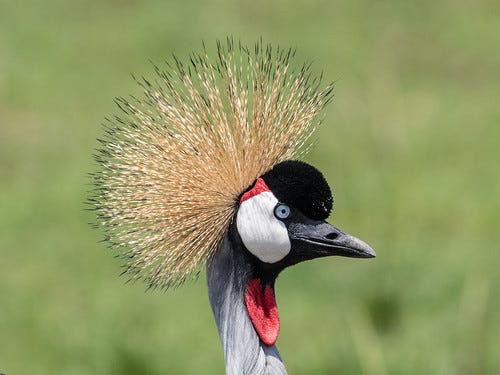

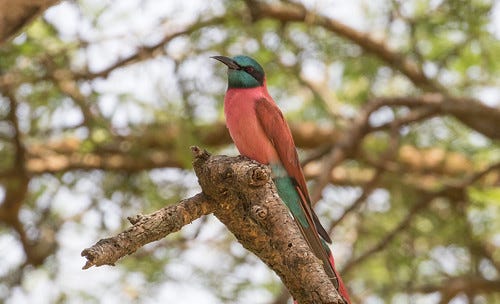
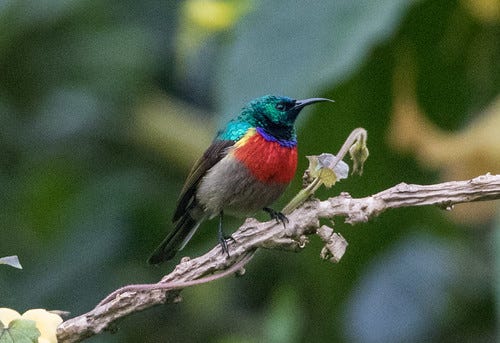
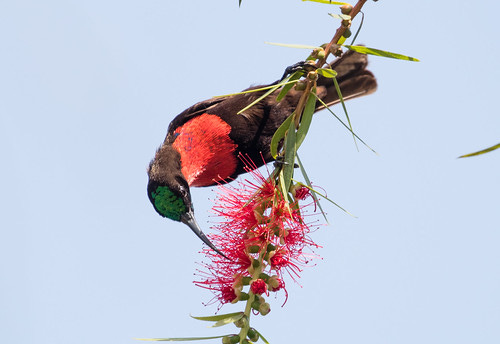
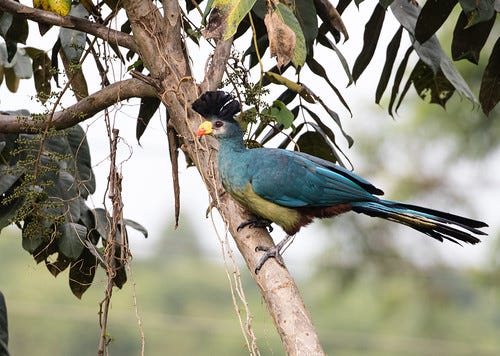
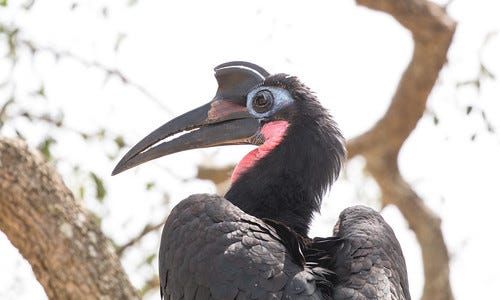

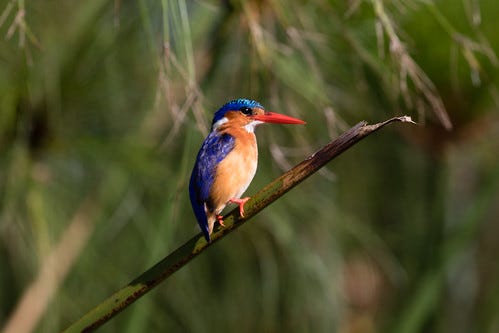
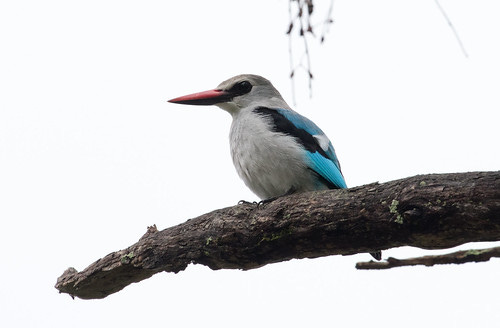
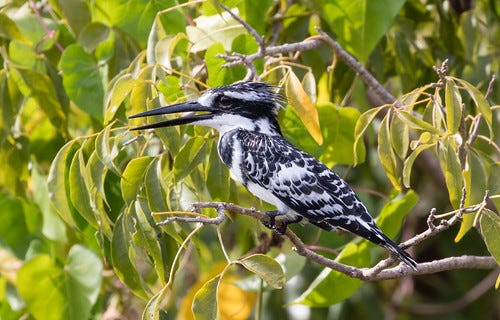
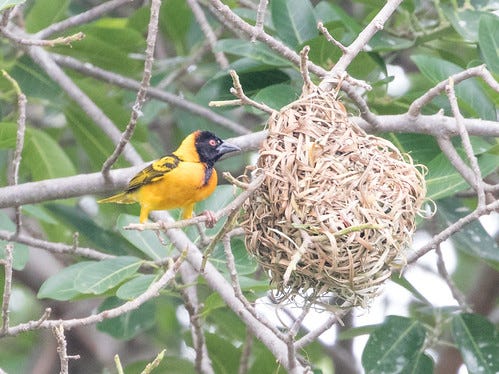
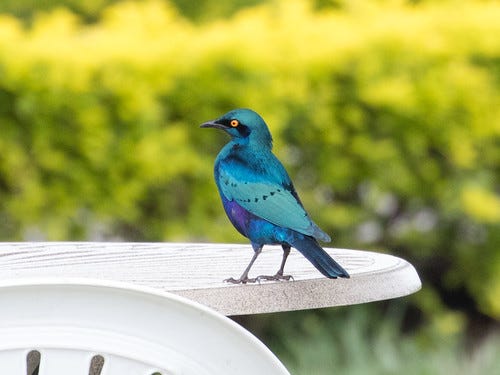
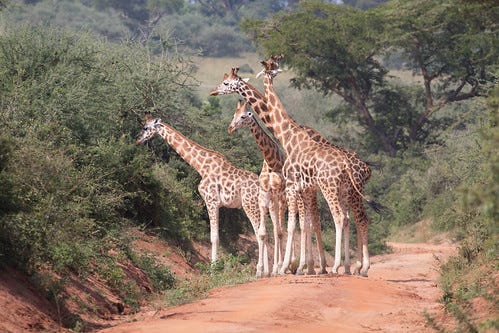
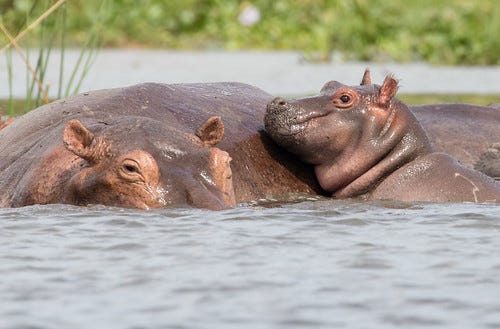
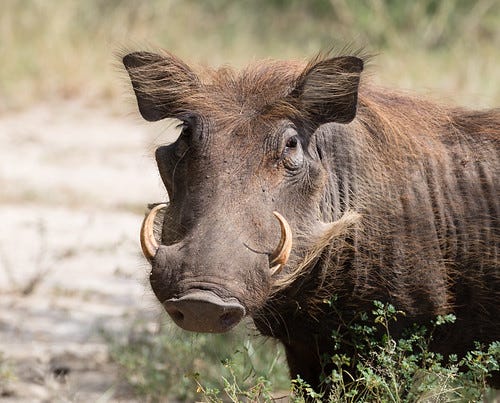
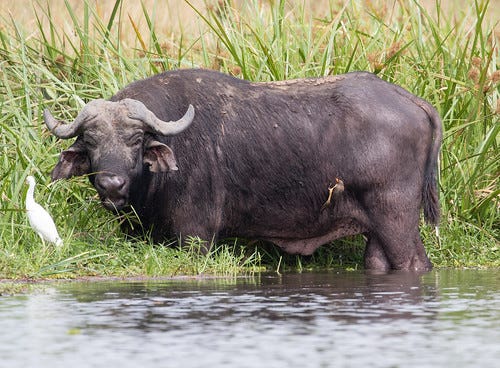

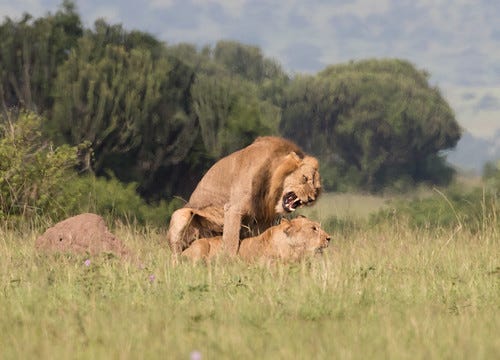
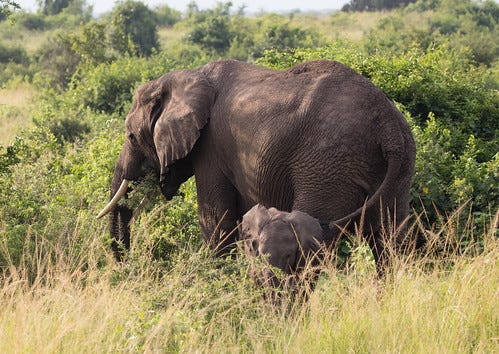
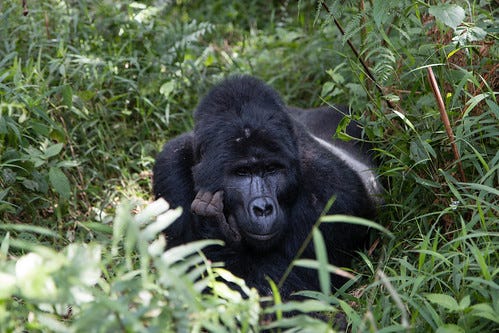
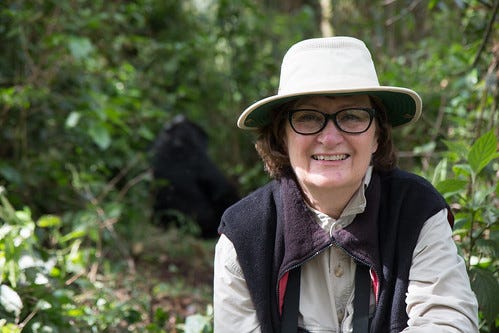
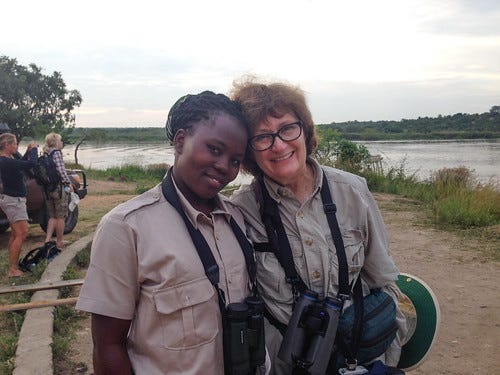



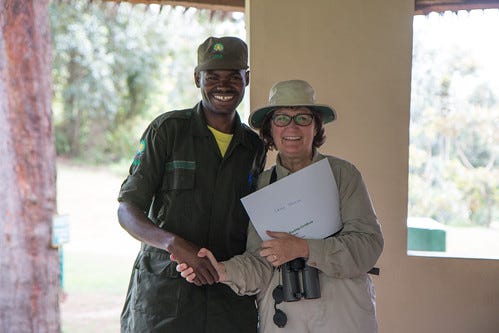
The only thing I'll call a shithole is Donald himself, and he is a thing. As Robert DeNiro said, he wouldn't play Trump because he isn't human, "he's a monster".
My biologist friend, formerly of Moravian College, now Moravian University, was in Uganda when she texted me that most people there don't know why they grow coffee or where it goes. I feel developing countries have power over us they are not aware of. All they have to do is become a collection of countries and impose a caffeine products embargo on us. I am powerless without caffeine.
The US government and corporations keep this hush-hush, but, according to Population Connection, our cell phones do not function without, I believe, cadmium. In Congo, the forest, the lungs of Africa, is being stripped bare by cadmium mines. They are hand-mined by Congolese families, and the open cadmium is highly toxic and deadly. Corporations do not tell us because the Congo area is the only area of the world where cadmium is mined in enough concentration to make it profitable. Children are lucky if they make $0.25 a day, women a $1. Mostly, they make nothing and it's modern slavery. Again, all the Congolese government needs to do is shut it down, and we are helpless. I am a just as guilty hypocrite, as our society and economy are unnecessarily addicted to cell phone use for practically everything. We can help by extending the battery and data on our phones and using WIFI whenever and wherever possible. What we do to developing countries is not sustainable, and it will backfire eventually, coming back to bite ourselves in the touchee.
In 1984, the figure was that we have 5% of the world's population and consume 25% of its resources. It's probably worse now with modern corporate greed, and the corporations are the puppetmasters of the government, particularly the Trump government. Unfortunately, they are run by the top 1%, really the top 0.10%, which have no interest or incentive like us to daily, in a self-disciplined manner improve the lives of others. They don't value it and won't do it.
If Jesus were alive today he would not support what you're referring to AT ALL, as he taught the Beatitudes and the Golden Rule. As you say clearly to me here, true conservatives and Christians should dismiss extremism as an irrelevant fluke, and act forward accordingly.
And the Crested Crane is downright gorgeous. Unfortunately, because of overconsumption more than overpopulation, it's IUCN Redlist Critically Endangered or Endangered. I don't remember exactly, but I think it's the former. In other words, it's in immediate danger of extinction. To say what a shame it is an understatement. However, hope springs eternal dictates that the bird can be, and the Crane Society is trying to make it, a flagship conservation species to save it and what's left of its habitat- which, yes, is quite one heavenly and beautiful shithole worthy of our every effort to preserve her.
One last thing of this usually long of my usually long responses, for which I apologize, is that the most valuable "crop" of Africa is its humble, ever-friendly, smart, and beautiful people. Thank you again for reminding me, and for your wonderful work.
One of the things I like about you Laura is that you are not only a compassionate birder but also a compassionate person! I am proud of you and your hubby!! Thanks again for the beautiful pictures of the extraordinary birds of Uganda and of the people you got to know...Tarry and I were talking the other day about how many Americans are still portraying the "Ugly American" abroad...and here in the states, too...but you and yours are what we all should aspire to!